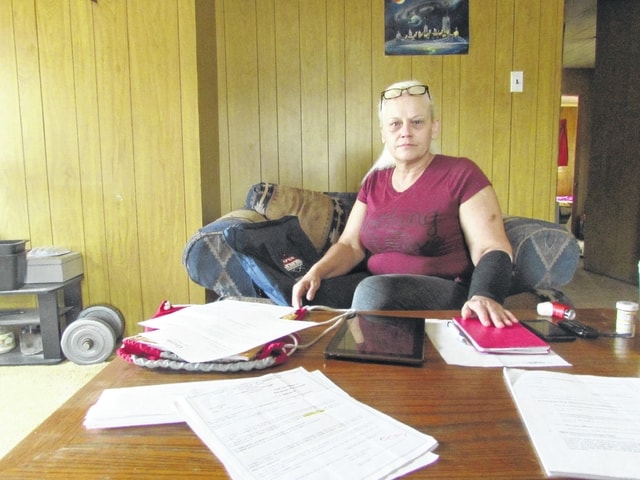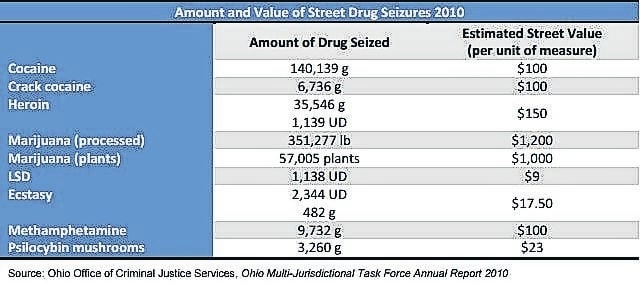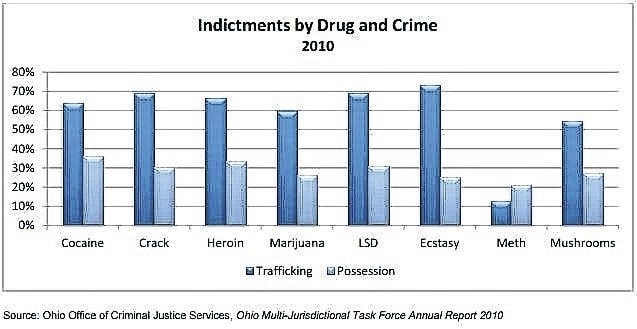


April Michelle Holley said her life has been anything but normal. The 55-year-old grandmother plead guilty Jan. 19 to three felony charges for trafficking in cocaine.
Sitting on the couch in the living room at her son’s apartment at 1119 1/2 Washington Ave., Holley said, “Since the day I walked in this town it has not been pleasant for me.”
She looked down at the brown coffee table where her paperwork was laid out in front of her: a case discovery packet, including police reports, from her attorney, and papers from her medical providers.
Her sentencing hearing was scheduled for the next morning, Feb. 8.
Picking up the discovery packet, she said she knew the confidential informant who worked to bring the criminal case against her.
“He’s just going in there and getting a free high and they’re making up stories, that’s exactly what they’re doing. They’re showing that address and then they’re filling in the blanks. It’s a bunch of bull. His word ain’t credible. It’s his story. And they have been sending everybody to prison. And there’s families. Like my daughter is pregnant,” said Holley.
She stopped talking and cried.
Holley and her family are one of many examples of how the drug epidemic in Ohio is worsening. Criminal arrests for drug trafficking in cocaine, heroin and meth increased over the past decade in the state. In 2010, over 60 percent of the 400 reported indictments for cocaine were for trafficking and 140 kilograms of cocaine was seized by law enforcement.
“With my select few”
The following incident was digitally recorded and a copy of the recording was filed with the Fayette County Prosecutor’s Office.
It was Friday, Oct. 30, 2015 and Holley was living with her daughter and grandson at a residence at 828 Washington Ave. Two men pulled up outside and Holley got into their car. The conversation between the three occupants was light. Holley lit a cigarette. The driver was working as a confidential informant for a covert drug investigation. Everything Holley said and did was being recorded.
“Turn right,” said Holley, directing the driver. The car stopped at a residence. Holley went inside and came out a minute later with cocaine.
The driver asked her if she was happy now.
“Yes because I like to go to the right source, you know what I’m saying? I’m about quality. The number one priority with me is quality,” Holley said. She talked about how she would sell the drugs.
“I don’t want to do this all the time. I don’t want to get in trouble,” she said. “I can do a little bit here and there with my select few with 100 dollars and up.”
She told the confidential informant that she had gotten some extra stuff — “a pack” — to sell out. A pack is usually a gram that has been divided into smaller amounts to be sold.
“I’m not a runner,” said Holley. Then she began to talk about her family. “I’m 54-years-old. I have good kids. I raised them on my own.”
Ten months later, Aug. 5, 2016, a Fayette County grand jury handed down an indictment on Holley for trafficking in drugs.
“It wasn’t me”
At her son’s apartment the day before her Feb. 8 sentencing, she looked again at the paperwork on the brown coffee table in front of her.
She opened a letter from her licensed mental health therapist. The letter said Holley has generalized anxiety disorder, major depressive disorder, recurrent/severe acute stress disorder, panic disorder, and cocaine disorder in remission.
“Heroin is something I would never do. I had some issues back in the day with cocaine. I’ve been clean for over a year. I’ve worked so hard to get where I am at. All of a sudden they want to drop the heroin trafficking case and they want to tack me with the cocaine because it sort of fits my profile from the past but that’s just nonsense,” said Holley.
In the past, she spent seven months in prison for possession of cocaine and drugs in 2014. Back in 2005 she had another case for possession of crack cocaine and drug paraphernalia.
Holley said that she never plead guilty to the trafficking charges less than a month earlier, during court Jan. 19.
“I never did that. I don’t have a memory of this,” Holley said.
In fact, she said she was innocent: the state had given her attorney a disk that “didn’t even have me on it. It was somebody else and they tried to say it was me. I was like, uh-uh, that’s not me, I’m innocent, dismiss the case.”
“This is my life”
The next day, Feb. 8, Holley was in the Fayette County Court of Common Pleas at 10 a.m. First a hearing was held because Holley wanted to withdraw her guilty plea.
With her attorney present, Holley told Judge Steven Beathard that she was confused.
“I did not know I was going to be sentenced to prison. I did not understand. I am innocent of these charges,” said Holley. “I saw a disk, it had nothing to do with me. I said I want my case dismissed. I am not guilty. I have new medications, I have papers right here. I have made numerous attempts to contact my attorney. I would like new counsel, please, and have a fair trial. This is my life.”
Her attorney, Kristina Oesterle, acknowledged that the state had initially given the wrong discovery to her client.
“There was a problem with discovery. The initial CD was not transactions involving her. I spoke with the prosecutor and got the correct CDs. I went over the CDs with her,” said Oesterle.
Holley said, “I never got to see the rest of that evidence, I never heard that disk.”
John Scott, Fayette County assistant prosecutor, said, “The state is confident we could prove these charges beyond a reasonable doubt. This is an epitome of a change of heart. She does not want to go to prison. She’s having buyer’s remorse.”
Beathard overruled the motion to withdraw her guilty plea and moved forward with sentencing.
Holley was sentenced to eight months in prison.
“Eight months of freedom”
The day after sentencing, Holley’s 23-year-old son, Javan Gore, said his mom has been “acting crazy” his entire life. Gore said her drug use over the years has been a deterrent.
“My sister doesn’t mess around with nothing either. Growing up around this makes you hate it. You don’t like being around it yourself,” he said.
Gore said at the time Holley was selling to the confidential informant, she lived with his sister and nephew at 828 Washington Ave. He said he was disgusted that she was selling drugs when her grandson was asleep upstairs.
“She would let him [a dealer] come and trap, she’ll answer the door and be his little door man. I’m like, well, what do you expect, mom, if you was not sitting there letting someone trap out of your house, being a little trap queen, then you wouldn’t have got indicted, none of that would have even happened to you. If you wouldn’t have put yourself in that circumstance you wouldn’t have gotten indicted for anything. So…it’s nobody else’s fault but your own,” he said.
Gore’s sister moved out of Fayette County to get away. Then Holley moved in with Gore and his wife. He said Holley didn’t pay bills and was high all the time, so they tried to evict her in court but were unsuccessful.
“She went in and gave the judge a sob story so she got to stay on some technicalities,” he said.
As far as not being able to remember pleading guilty to her trafficking charges, Gore said Holley was probably high when she went to court. “She could have been super geeked out and stayed up for three days and then went in [to court].”
He wasn’t surprised that his mother went back to prison. He went to watch her sentencing hearing and later expressed relief.
“You see nothing is in here?” Gore said, motioning to the mostly empty living room. “I have been living in my bedroom. Everything is in my bedroom so I can close my door and hide from her. Now that she’s gone, I’m going to start moving my things back into my living room. I can actually sit in my living room. I was a prisoner in my own house. She needs to get some help.”
Sighing, he said he will try to do another formal eviction so Holley won’t be able to move back in when she gets out of prison.
“It’s eight months in prison for her, yeah, but for me…it’s eight months of freedom,” he said.
Information and statistics on drug arrests, imprisonment and epidemic featured in this article were sourced from the Bureau of Justice Statistics and the Ohio Department of Public Safety’s division of the Office of Criminal Justice Services.




